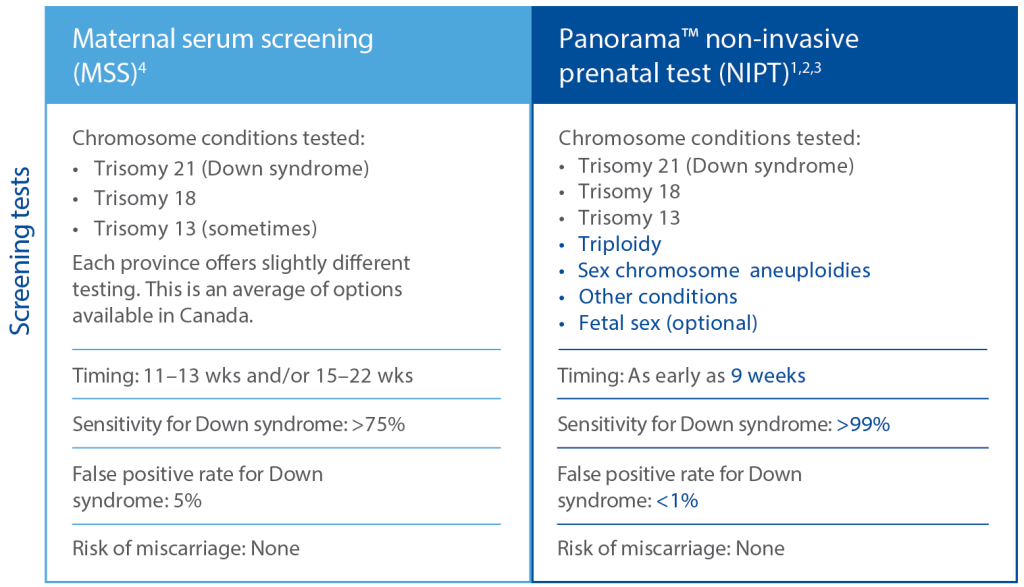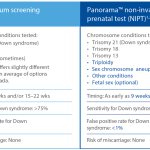Unveiling The Power Of Panorama Test: Discover What It Tests For And Take Action Now!
What Does Panorama Test For: A Comprehensive Guide
Introduction
Good day, Happy People! In this article, we will delve into the topic of What Does Panorama Test For and explore its significance and implications. The Panorama test is a prenatal screening test that helps detect chromosomal abnormalities in the fetus, providing expectant parents with valuable information about their baby’s health. This revolutionary test has gained popularity due to its accuracy and non-invasive nature. Let’s dive into the details and uncover all you need to know about the Panorama test.
2 Picture Gallery: Unveiling The Power Of Panorama Test: Discover What It Tests For And Take Action Now!
What Is the Panorama Test?
The Panorama test is a non-invasive prenatal screening test performed on a blood sample from the mother. It examines the fetal DNA present in the mother’s blood to identify chromosomal abnormalities in the baby. This test can detect conditions such as Down syndrome, Edwards syndrome, Patau syndrome, and certain sex chromosome abnormalities with a high degree of accuracy.
How Does the Panorama Test Work?

Image Source: innermosthealthcare.com
The Panorama test analyzes cell-free DNA (cfDNA) fragments in the mother’s bloodstream. These fragments come from the placenta and contain genetic information about the baby. By examining the cfDNA, the Panorama test can identify any chromosomal abnormalities. The test uses advanced technology to analyze millions of DNA sequences and provide accurate results.
Who Should Consider the Panorama Test?
The Panorama test is recommended for pregnant women who want to screen for chromosomal abnormalities in their baby. It is especially useful for women who are at a higher risk of having a baby with Down syndrome or other genetic conditions, such as women over the age of 35 or those with a family history of chromosomal disorders.
When Can the Panorama Test Be Done?

Image Source: lifelabsgenetics.com
The Panorama test can be conducted as early as 9 weeks into pregnancy. This early timing allows expectant parents to receive vital information about their baby’s health at an early stage, helping them make informed decisions and prepare for any potential challenges ahead.
Where Can You Get the Panorama Test?
The Panorama test is available at various healthcare providers and specialized laboratories. Your healthcare provider can guide you on where to get the test done and help you understand the process and implications.
Why Should You Consider the Panorama Test?
The Panorama test offers several advantages over other prenatal screening tests. It has a high accuracy rate, detecting a wide range of chromosomal abnormalities with a low false-positive rate. Furthermore, it is a non-invasive test, which means it carries no risk of miscarriage or harm to the baby. The test also provides early results, allowing expectant parents ample time to consult with healthcare professionals and make informed decisions about their pregnancy.
What Are the Limitations of the Panorama Test?
While the Panorama test is highly accurate, it is important to note that it is a screening test and not a diagnostic test. In some cases, a positive result may require further diagnostic testing, such as amniocentesis or chorionic villus sampling, to confirm the presence of a chromosomal abnormality. Additionally, the Panorama test does not screen for all possible genetic disorders, so it is essential to discuss its limitations with your healthcare provider.
Frequently Asked Questions (FAQs)
1. Does the Panorama test carry any risks?
No, the Panorama test is a non-invasive screening test and does not pose any risks to the mother or the baby.
2. How long does it take to receive Panorama test results?
The Panorama test typically provides results within 7 to 10 days from the date the laboratory receives the blood sample.
3. What should I do if my Panorama test results indicate a high risk for a chromosomal abnormality?
If your Panorama test results show a high risk for a chromosomal abnormality, it is essential to consult with your healthcare provider and consider further diagnostic testing for confirmation.
4. Is the Panorama test covered by insurance?
Many insurance plans cover the Panorama test, but it is advisable to check with your insurance provider for specific coverage details.
5. Can the Panorama test determine the gender of the baby?
Yes, the Panorama test can determine the gender of the baby with a high degree of accuracy.
Conclusion
In conclusion, the Panorama test is a groundbreaking prenatal screening tool that offers expectant parents valuable insights into their baby’s health. It provides accurate and early detection of chromosomal abnormalities, allowing parents to make informed decisions and seek appropriate support. Remember to consult with your healthcare provider to understand the test’s benefits, limitations, and any necessary follow-up actions. Stay proactive in safeguarding your baby’s well-being!
Final Remarks
Disclaimer: The information provided in this article is for educational purposes only and should not replace professional medical advice. It is essential to consult with your healthcare provider for personalized guidance regarding prenatal screening tests and any potential concerns you may have. Always prioritize the well-being of both mother and baby throughout your pregnancy journey.
This post topic: Panorama



